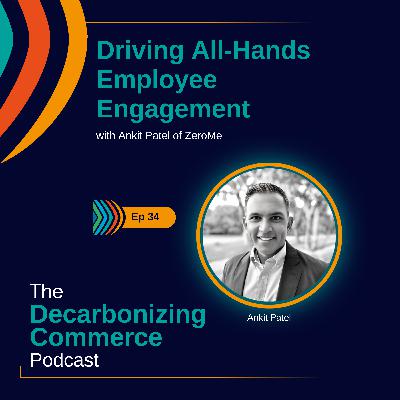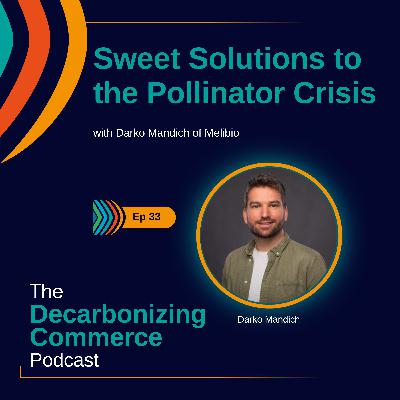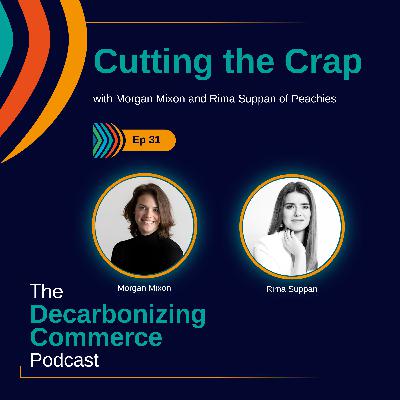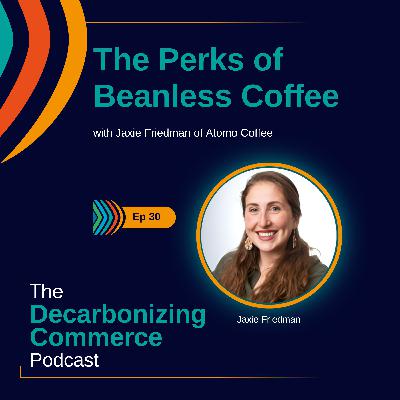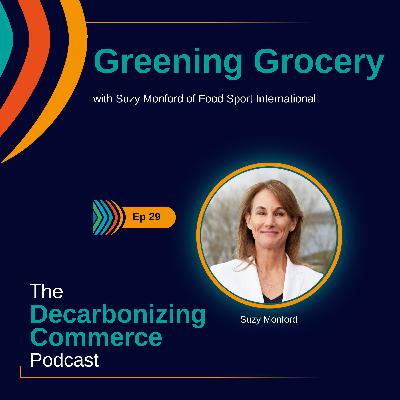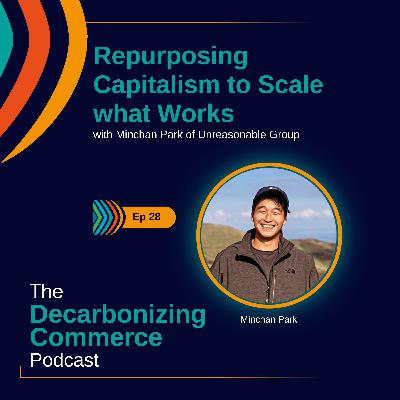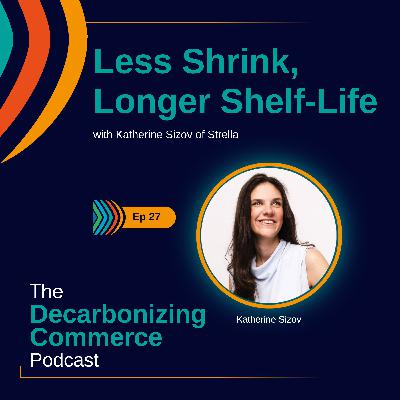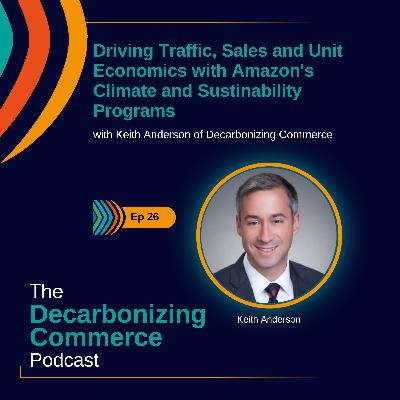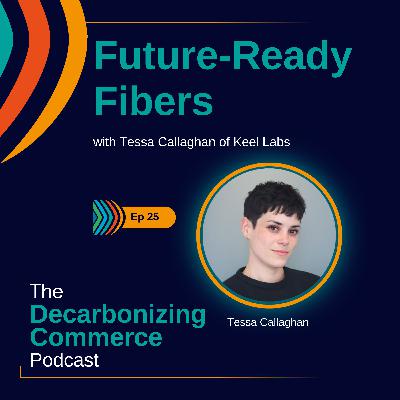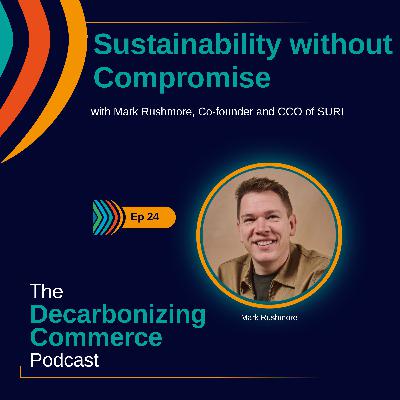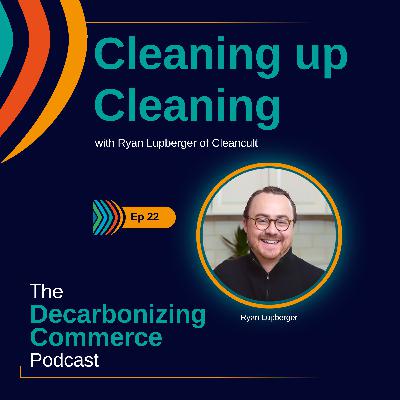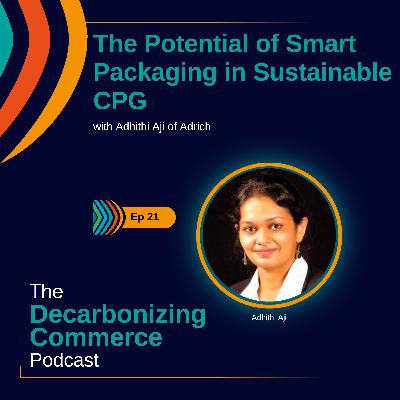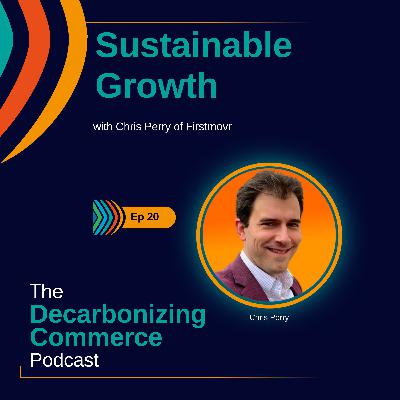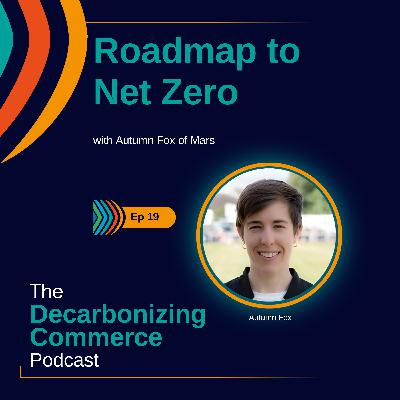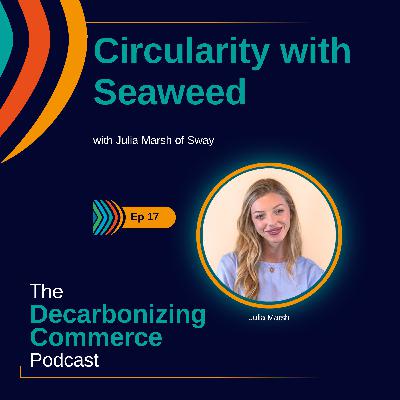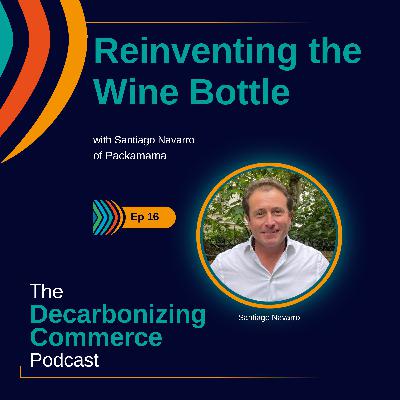Increasing Efficiency and Lowering Emissions at the Last Mile with Mike Robinson of The 8th Notch
Update: 2024-03-07
Description
In this episode, join Keith Anderson as he meets and learns from today's guest, Mike Robinson, who is part of the founding team of The 8th Notch, a software platform helping retailers and carriers essentially do what they already do, but more effectively and cost efficiently--incidentally, reducing emissions in profound ways. Together they discuss the outlook on the future of delivery in e-commerce, touching on a report by the WEF, and what The 8th Notch brings to the table in this area. With more than 25 years of leadership experience in the retail industry, Mike shares his thoughts and outlook in this episode of Decarbonizing Commerce.
Learn more about Mike Robinson:
- Link to The 8th Notch’s website
- Link to Mike’s LinkedIn
To listen to the full episode join our Plus or Pro memberships at decarbonize.co:
Episode resources:
If you enjoyed this episode then please:
- Follow, rate, and review on Apple Podcasts
- Follow and rate on Spotify
Learn more about Decarbonizing Commerce at decarbonize.co
TRANSCRIPT BELOW:
Keith Anderson: Welcome to Decarbonizing Commerce, where we explore what's new, interesting, and actionable at the intersection of climate innovation and commerce. I'm your host, Keith Anderson, and together we'll meet entrepreneurs and innovators reinventing retail, e-commerce, and consumer products through the lenses of low carbon and commercial viability.
TRANSCRIPT BELOW:
Keith Anderson: Welcome to Decarbonizing Commerce, where we explore what's new, interesting, and actionable at the intersection of climate innovation and commerce. I'm your host, Keith Anderson, and together we'll meet entrepreneurs and innovators reinventing retail, e-commerce, and consumer products through the lenses of low carbon and commercial viability.
Welcome to the Decarbonizing Commerce Podcast. I'm Keith Anderson. Logistics is one of the areas, one of the parts of the retail e-commerce and consumer products value chain, where things you do to lower emissions can often have a positive economic impact. That is, if you're able to eliminate waste or operate more efficiently, Not only do you reduce emissions, but you lower cost.
But it's also one of the most complex because the shopper has been conditioned over the last 10 or 15 years to expect first two day, and then next day, and increasingly same day delivery, often free delivery. And so we can already see with studies from folks like the World Economic Forum that, you know, the outlook, given the rising demand for e-commerce and urgent delivery, there's going to be a profound increase in emissions and road congestion driven by e-commerce.
And that's why I was so interested to meet and learn from today's guest, Mike Robinson, who is part of the founding team of The 8th Notch, a software platform focused on sustainable last mile deliveries. The headline on The 8th Notch is they are a software platform helping retailers and carriers essentially do what they already do, but more effectively and cost efficiently, which incidentally reduces emissions in ways that can be pretty profound. And Mike has more than 25 years of leadership experience in the retail industry. He has expertise in digital retail growth, product management, and technology delivery.
He's held these roles at companies like Macy's and The Gap. As well as IBM and PwC. And these days, he's a strategic advisor to several early stage startups, and an independent board member of Vista Outdoors. So, I'm very excited for you to meet Mike and learn about The 8th Notch, who's working to decarbonize the last mile of e-commerce delivery.
Mike, welcome to the Decarbonizing Commerce podcast. Good to see you.
Mike Robinson: Good to see you as well, Keith. Happy to be here.
Keith Anderson: You know, I, I often start the show by getting to know the guests a little bit, but in this case, I actually would love to start with, your company's name. Tell us about The 8th Notch and what that means.
Mike Robinson: Yeah. The 8th Notch is not, is not a name that you would think of, but, but it's an homage to the founder's father who was in the railroad industry. And the 8th notch is the most powerful setting on the engine itself, and it identifies efficiency and it identifies power. So it's a little bit of a, you know, homage to his dad, but, but also the notion of, you know, "how do you take advantage of the things that we already have and make them better?"
Which is really what we're attempting to do at The 8th Notch.
Keith Anderson: Super interesting. Well, maybe we can start then with, what you are doing at The 8th Notch and it would be great to better understand your background and how you got involved with the HNOT, with The 8th Notch, once we've given folks a sense of what it does.
Mike Robinson: Yeah, I'll give you, I'll give you the nickel tour of my background, right? So, for the better part of the last 25 years, I've been focused on retail. I, I often describe myself as an accidental retailer because it's not what I intended to be, right? I came out of college with the intent of going to Wall Street and one thing led to another and I ended up in consumer products.
Then I ended up in consulting. And then I stumbled into retail and, and especially it was at the beginning, pretty much at the beginning of the dawn of the e-commerce boom, right? In the, in the, in the late nineties, it was with a, a consulting firm here, here in the Bay Area. And we were really, you know, building the first generation e-commerce sites for a lot of the large companies in America.
After that, I, I recognize that I like the nature of retail. I like the immediacy of it. I like the, you know, the understanding of the customer. I like the psychology of how do you help people, you know, either buy things that they need more effectively, or how do you turn, you know, you know, wants into needs to actually get them to consume, right?
Which is the great, you know, retailer dilemma in many cases and the calculus that most retailers go through. So, after that consulting agency, I ended up going back to the PricewaterhouseCoopers where I'd been before and I operated in biotech and high tech for a period of time, but always had this longing to get back into retail and had an opportunity to go into it from an industry background.
Joined the GAP in the mid 2000s, helped them rebuild their e-commerce business from a technology standpoint and a process standpoint. Spent some other, spent a few additional years at the GAP, you know, helping a large retailer kind of turn the ship a little bit. And then I got tapped on the shoulder to go to Macy's to do the same thing.
And it was, you know, Macy's was a, $700, so 700 million e-commerce channel by the, when I got there, it was 7 billion by the time I left. Now I'd like to believe that I had a positive effect on it over those, you know, eight years. I've been told I had a positive effect, but I know it was also, it was, we timed the market perfectly and we timed the investment strategy perfectly.
And we, and also timed the consumer as well, who was having a changing behavior set. as they moved away from stores to e-commerce to omni-channel. And, and then I left there, in 2018. It was, you know, that was the completion of my journey. And in 2018, I started, I had this notion of "should I keep going down the large operator role, or should I do what I really love, which is advisory roles?"
And I've done a series of advisories for smaller startups in the retail industry area. From a consumer experience standpoint, cetera, with, with some successful exits associated with it, sit on a public board company for a company that is, you know, primarily consumer products, but transitioning to being much more direct to consumer.
And then my buddy tapped me on the shoulder and said, "I got this idea for a company." And the origin story really goes as simple as this. The founder, Jamie Sapp, who's been a long time friend of mine and a very smart person on the logistics side, looked at me and he said, "how often does a delivery truck come down your street?"
And I said, "every day. In fact, they all come down my street. You know, the Amazons, the UPSs, the FedExes, the OnTracks of the world." He goes, he goes, "does it seem like it's too much?" I said, "sure. Every time that, you know, the fact that I'm getting five deliveries a week and they're coming all on different days feels like a lot" and he goes, "I want to fix that. I want to build a business around that. I want to fix that. I want to unlock value associated with that."
And that was the beginning of what we wanted to do, which was "how do we, you know, minimize the number of times that a delivery truck comes to your house, but still maximizes the number of deliveries that are intended for you?"
It's just the combination is different and we use time differently. So it's not happening five times a week. It could be happening three times a week or two times a week.
Keith Anderson: Got it. Yeah, I mean, tha
Comments
In Channel


